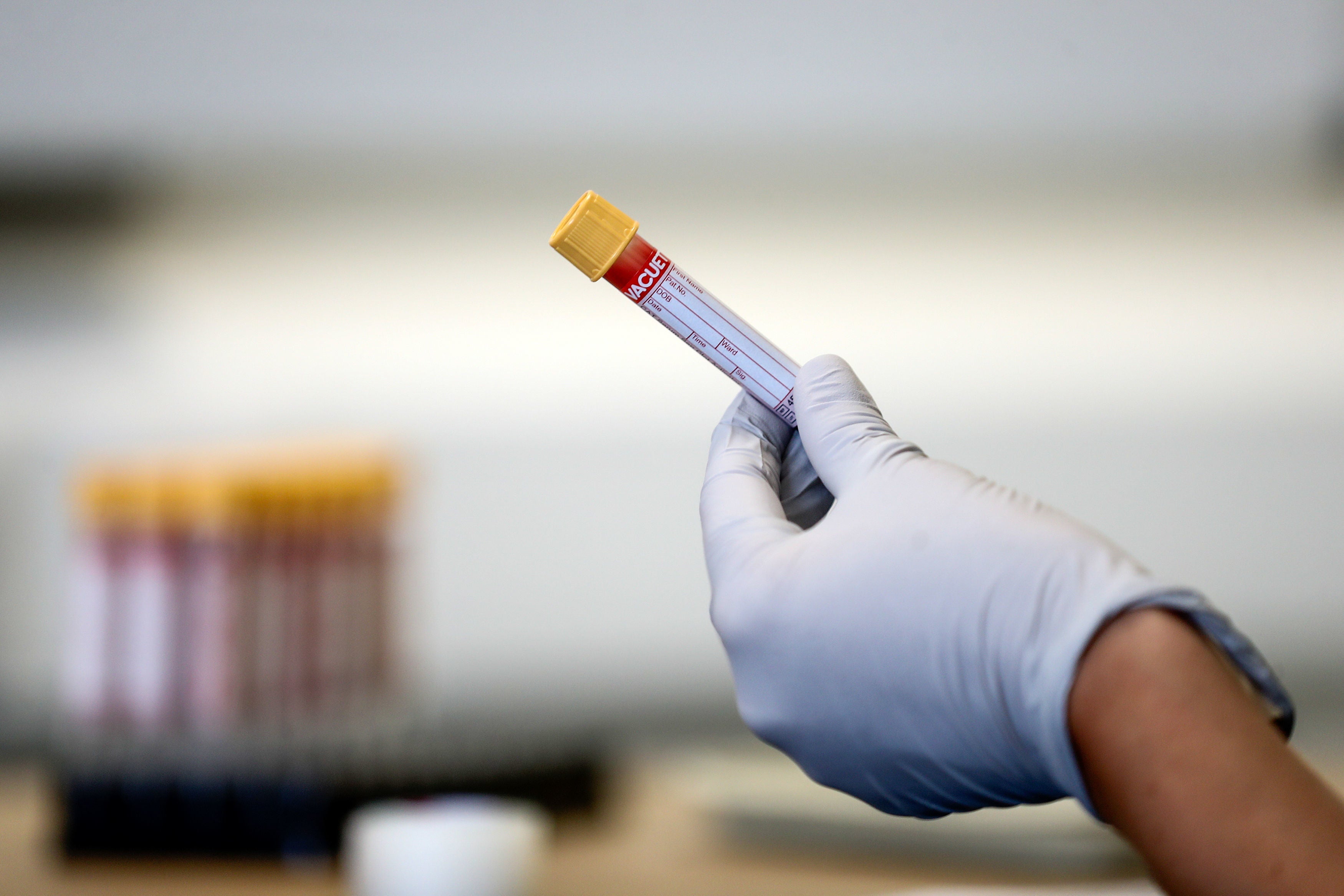Blood markers could help identify rare, inherited form of Alzheimer’s disease
Findings could lead to earlier detection of the disease

Your support helps us to tell the story
From reproductive rights to climate change to Big Tech, The Independent is on the ground when the story is developing. Whether it's investigating the financials of Elon Musk's pro-Trump PAC or producing our latest documentary, 'The A Word', which shines a light on the American women fighting for reproductive rights, we know how important it is to parse out the facts from the messaging.
At such a critical moment in US history, we need reporters on the ground. Your donation allows us to keep sending journalists to speak to both sides of the story.
The Independent is trusted by Americans across the entire political spectrum. And unlike many other quality news outlets, we choose not to lock Americans out of our reporting and analysis with paywalls. We believe quality journalism should be available to everyone, paid for by those who can afford it.
Your support makes all the difference.A new breakthrough could help medical professionals spot a rare, inherited form of Alzheimer’s disease ten years before symptoms appear in sufferers.
Scientists attribute this potentially groundbreaking claim to the discovery of blood markers in people who are in the very early stages of the neurodegenerative disease.
The tell-tale sign is a protein called GFAP that can appear in the blood samples of such people, say researchers at the Karolinska Institutet in Sweden.
The scientists said their findings, published in the journal Brain, could lead to earlier detection of the disease and help slow it down with drugs.
Charlotte Johansson, a doctoral student at the Department of Neurobiology, Care Sciences and Society at the Karolinska Institutet, who is the first author of the study, said: “Our results suggest that GFAP, a presumed biomarker for activated immune cells in the brain, reflects changes in the brain due to Alzheimer’s disease that occur before the accumulation of tau protein and measurable neuronal damage.”
Alzheimer’s disease is a progressive condition with symptoms developing gradually over many years, evolving to be more severe as time passes.
Nerve cells in the brain degenerate as a result of the abnormal accumulation of two types of proteins known as beta-amyloid and tau.
The first sign of the disease is usually minor memory problems. As more nerve cells become damaged, speech becomes affected.
In more than 99 in 100 of cases Alzheimer’s is not inherited, but in rarer types there may be a strong genetic link.
In these cases, people with a parent with Alzheimer’s caused by a mutation have a 50% risk of developing the disease themselves.
For their study, the researchers analysed 164 blood plasma samples from 33 mutation carriers and 42 relatives without it.
The researchers said their results showed “clear changes” in the samples of those who carried the mutations.
Caroline Graff, professor at the Department of Neurobiology, Care Sciences and Society at the Karolinska Institutet, and one of the study authors, said: “The first change we observed was an increase in GFAP (glial fibrillary acidic protein) approximately 10 years before the first disease symptoms.
“This was followed by increased concentrations of P-tau181 and, later, NfL (neurofilament light protein), which we already know is directly associated with the extent of neuronal damage in the Alzheimer’s brain.
“This finding about GFAP improves the chances of early diagnosis.”
With additional reporting from PA



Join our commenting forum
Join thought-provoking conversations, follow other Independent readers and see their replies
Comments